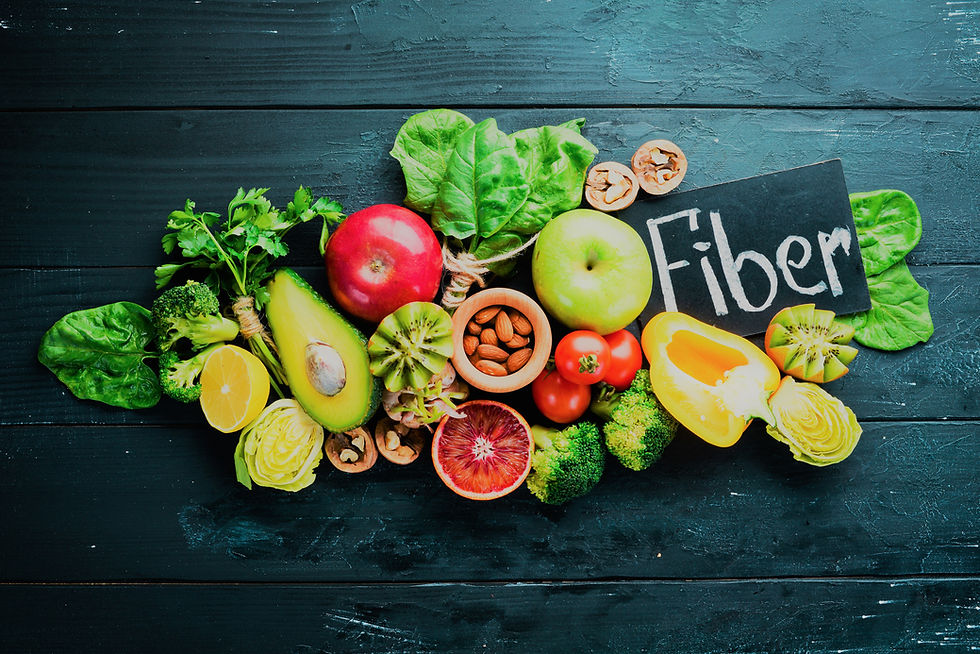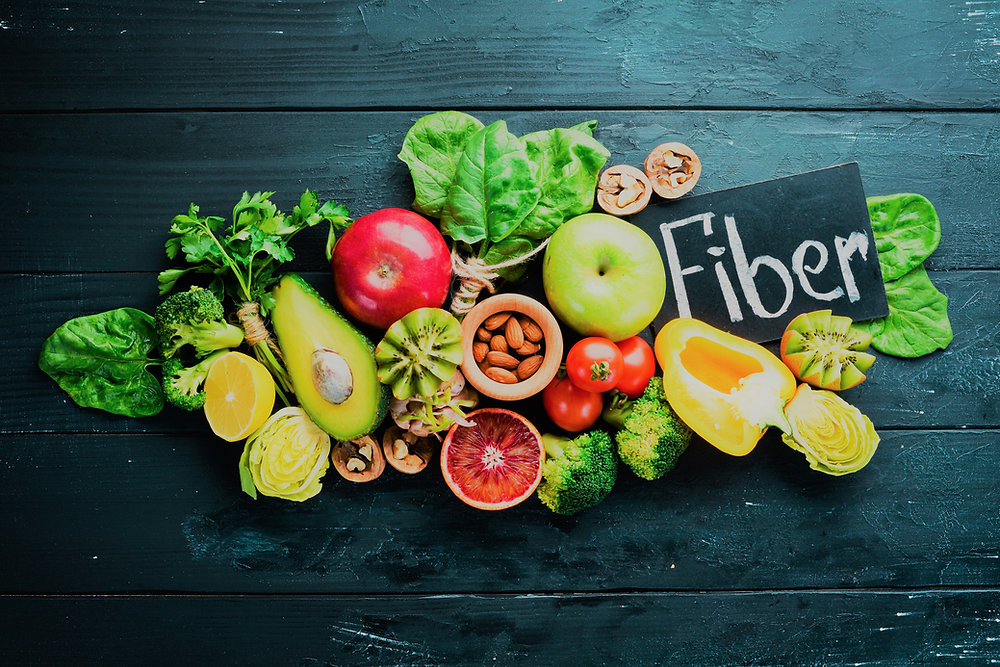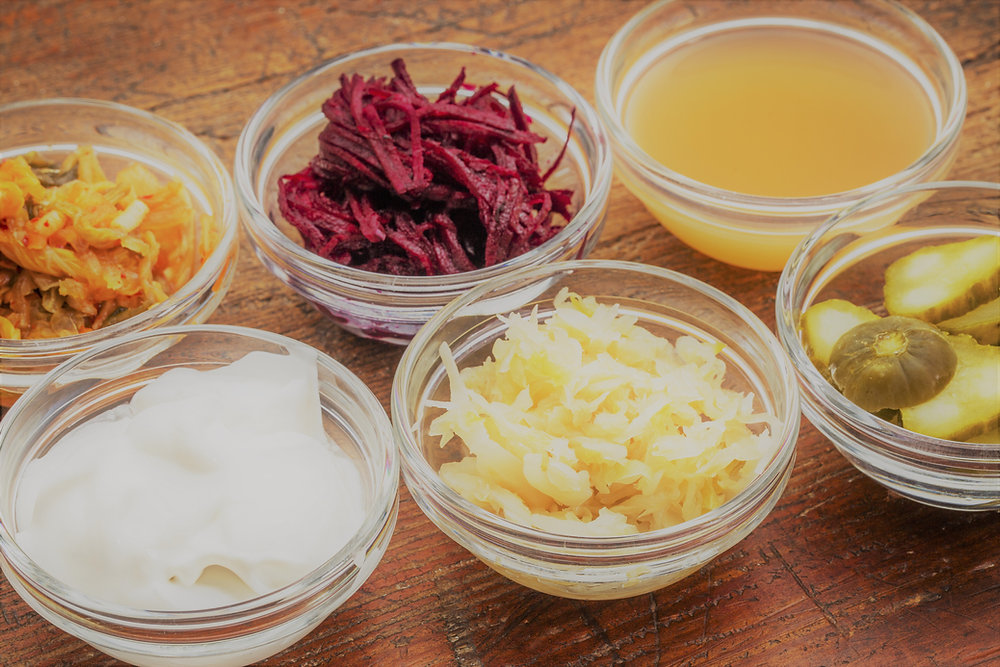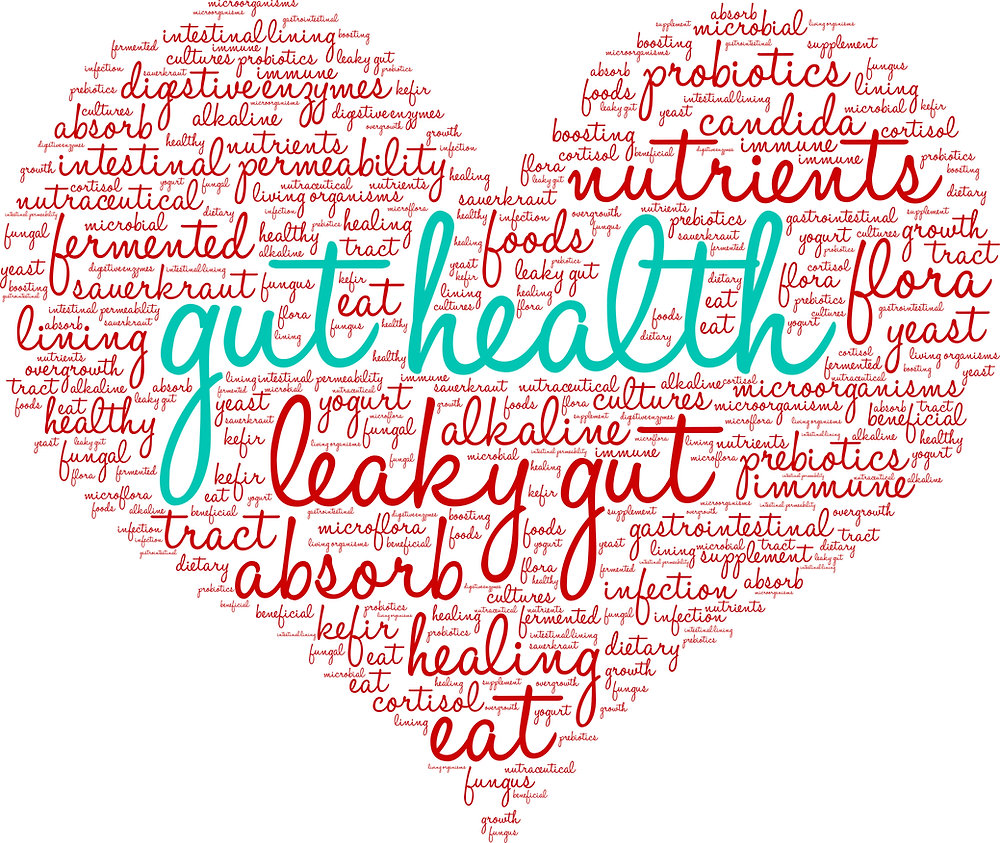
Fiber is an important part of a healthy diet and is especially crucial to the health of our gut microbiome. Fibers are complex carbohydrates that our bodies cannot digest, so they are not broken down into glucose like other carbs. Fiber can be fermented in the large intestine by microbes, resulting in short-chain fatty acids, which regulate the immune system and provide several other health benefits.
Two Types of Fiber: Soluble versus Insoluble Fiber
Soluble fibers tend to form gels that are fermented by bacteria in the gut that turns them into short-chain fatty acids, so they promote gut health and help to maintain the gut barrier. They have also been shown to improve blood glucose control and lower serum cholesterol levels. Soluble fibers include things such as resistant starch, beta glucans, pectins, and gums, and can be found in a wide variety of vegetables, fruits, nuts and seeds, but especially in squash, carrots, tubers, parsnip, plantains, and other root vegetables.
Insoluble fibers are not easily fermented, but they do help increase the bulk of our stool and can help with moving food through our gut and staying regular. Insoluble fibers include cellulose, rice bran, and wheat bran, and good sources include greens, peas, celery, cabbage, onions, Brussels sprouts, garlic, eggplant, broccoli and cauliflower.
Some foods are a good source of both soluble and insoluble fiber, and it can even depend on how you prepare a food. Regardless, foods that are rich in fiber rich also tend to be more satiating, and thus can be helpful for weight loss. The fuller we feel, the less we typically eat!
But is also important to note that if you are experiencing gut health conditions, such as IBS, SIBO and other gastrointestinal issues, insoluble fibers can be very irritating to the gut lining. A low-fiber and low-FODMAP diet is sometimes used for a short time in the treatment of SIBO and other dysbiosis, when there is a need to decrease symptoms so that the patient is able to tolerate and undergo treatment. But some functional health practitioners are moving away from this idea, as prebiotic fiber benefits the good bacteria in our guts. So we recommend working with a functional nutritionist (like our nutritionist) or a functional practitioner to specifically address gut health and how best to support improving your gut.
How Much Fiber Do You Need?
The Institute of Medicine recommends 14 grams of fiber per 1,000 kilocalories, or about 38 grams per day for adult men and 25 grams per day for adult women. Yet, the average total fiber intake for American adults is 14 – 18 grams per day. Ideally, if you have a pretty healthy gut, you want a nice mix of soluble and insoluble fiber in your daily diet as well. The best source is from whole food plant-sources, so lots of vegetables and fruit!
What Does Low Fiber Intake Do To Our Bodies?
Low-fiber intake results in increased risk of:
Heart disease
Metabolic syndrome
Type 2 diabetes
Diverticulosis
Chronic constipation
Possibly increased risk of breast cancer
Alternate Fiber Sources
We live in a world with lots of fortified foods and fiber supplements. Although a nice variety of whole-food plant sources is the best way to meet your daily fiber intake, if you are going to consume synthetic fibers or added fibers, check the ingredients closely to ensure the fiber is not coming from inflammatory, or anti-nutrient-rich sources (like grains). These are typically insoluble fibers that are added to foods, such as rice bran or wheat bran, which are then labeled “fortified.”
Why is this a concern?
They may bind to minerals, such as calcium, magnesium, zinc, and iron, and prevent absorption.
They can inhibit pancreatic enzyme activity and protein digestion.
Note: If you have issues with your blood sugar or gut dysbiosis, there are high quality supplements out there that can support your soluble fiber intake.
Today’s Take-aways
Fiber consumption is part of a well-rounded diet. Ideally, fiber intake should consist of both soluble and insoluble fiber, and should come from whole-food plant sources. An ancestral-based nutrition approach, such as the one we incorporate into our nutrition plans, is very nutrient dense and full of a wonderful variety of fiber-rich sources. At Lifestyle Evolution, we can help you create a sustainable lifestyle that is based in a way of eating that supports overall health and wellness, as well as weight loss. You CAN do this in a way that is realistic and achievable!
Yours in Health ~ Jeanna and Steve
Reach out for a FREE consultation today: Call us at 303.525.5848 Email us at jeanna@lifestyle-evolution.com Find our profile on DaoCloud: https://www.daocloud.com/pro/lifestyle-evolution
www.lifestyle-evolution.com
#virtualcoaching#healthcoaching #healthcoach #cleaneating #ancestraleating #nutritioncoach#eatingforweightloss#Weightloss#healthandwellness #obesityhelp #nutrientdense #lifestylechange #sustainablechange #selfcare #fiber




